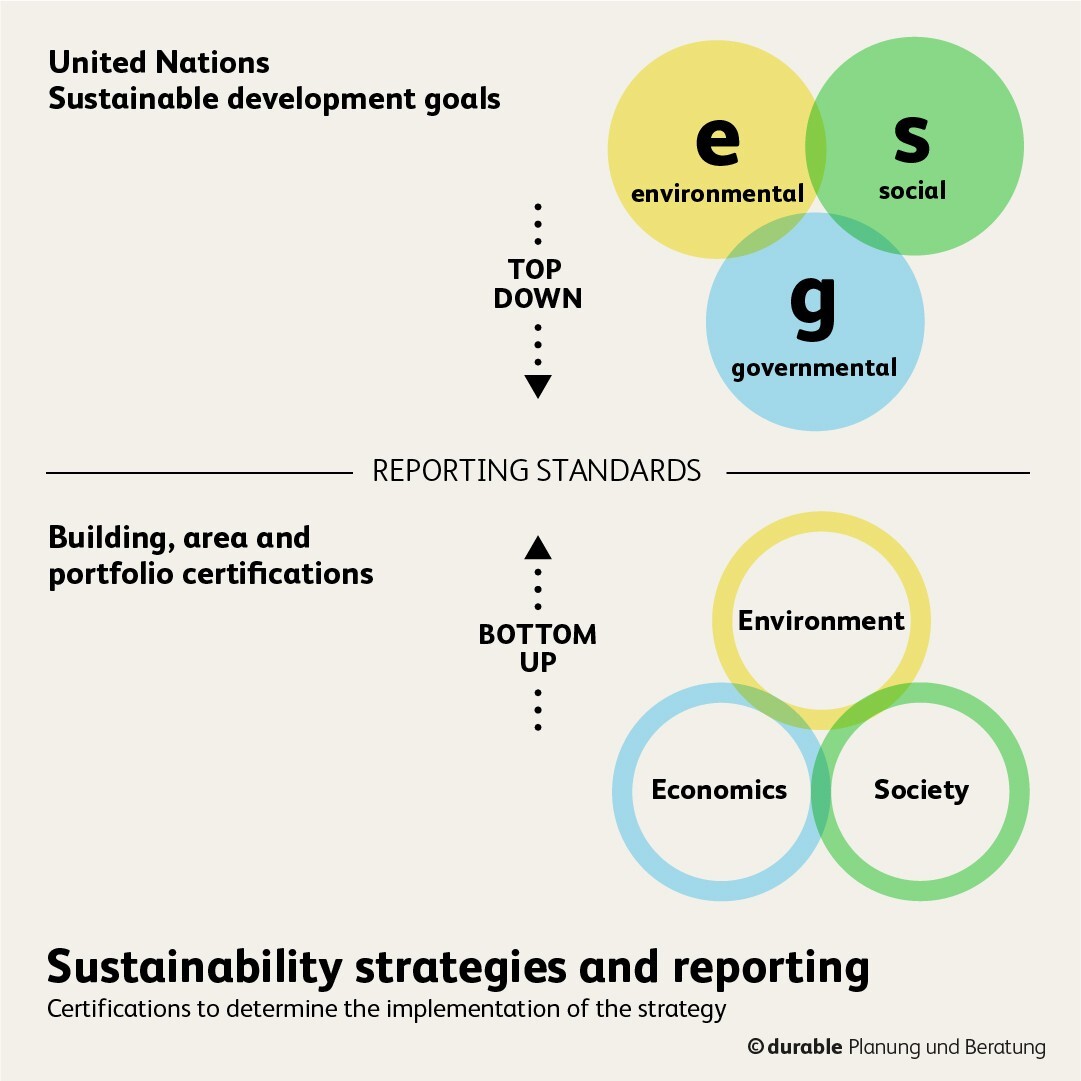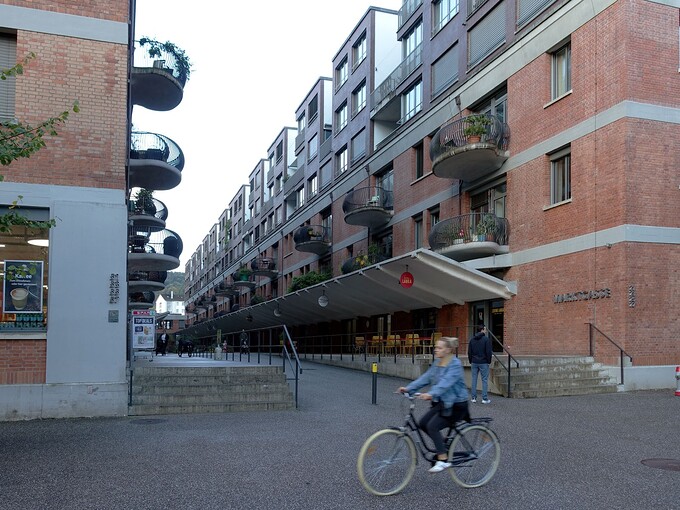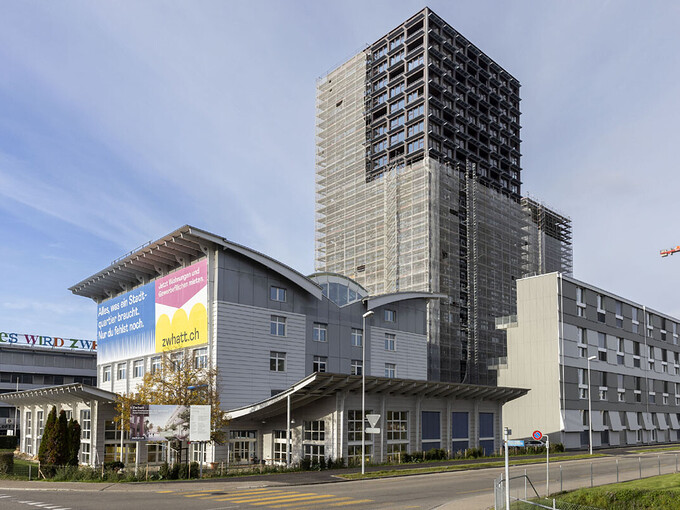Sustainability standards with a holistic approach have become established at the latest with the ESG rating for the sustainable trading of companies. Topics of society, economy, environment, which have been recognised since Brundtland in 1987, are juxtaposed to environmental, social and governmental aspects of ESG ratings. Company ratings such as GRI or GRESB can be better served if the properties are certified according to the broadest possible sustainability standards.
Sustainability certifications are based on standards and verify the successful implementation of the sustainability targets originally set. They enable the qualitative and quantitative assessment of measures and comparability with the market. As sustainability has become increasingly complex, standards and certifications have also become more extensive.
The range of certifications extends from purely energy-related or ecological labels to overall sustainability certificates and from a focus on individual components and buildings to the assessment of entire sites and portfolios. There are also certificates specifically geared towards developments, planning, operation and existing buildings, whereby the purpose of the application and the phasing are taken into account in each case.
Sustainability certifications increase property value. Certified buildings have demonstrably higher market values and are more attractive to tenants and buyers. They are not only more environmentally friendly, but also offer lower operating costs and a higher quality of use. For investors and owners, this means a better ability to act, higher profitability and the avoidance of stranded assets.

References

Building certifications for operation and use
Standards for existing buildings that reflect long-term optimisation
International portfolio ratings, such as GRESB, encourage the adoption of sustainability certifications during the operational phase of buildings. Institutional real estate investors place high importance on transparently showcasing the sustainability of their property portfolios.
These certifications involve an ongoing process of monitoring and optimisation, contributing to the reduction of the environmental footprint of existing buildings. In this regard, Durable works with recognised standards like DGNB Buildings in Operation, LEED for Existing Buildings, and BREEAM In-Use.

Procedure for a preliminary check
A project is evaluated for its certifiability based on a chosen sustainability standard. The process begins with an initial assessment, where the existing project documentation is reviewed and the standard’s requirements are applied to the project. This is followed by a workshop with the planning team and the client to refine the evaluation. The result is an overall assessment, where any missing information is supplemented by industry experience. The pre-check report highlights potential areas for optimisation and identifies any risks, providing a clear view of both the certifiability and the likely certification level that can be achieved. This report serves as a key decision-making tool for the client.

'SNBS-Areal' Standard for ESG Ratings
A sustainability standard as a bridge to ESG ratings
The certifiable 'SNBS-Areal' standard, newly developed by Durable on behalf of the Sustainable Construction Network Switzerland (NNBS), places a strong emphasis on ESG (Environmental, Social, and Governance) considerations. These key areas include climate protection, microclimate, circular economy, water management, and biodiversity.
With its focus on these topics, the standard aligns closely with the environmental criteria of the EU Taxonomy, significantly facilitating ESG ratings. The option for pre-certification as early as the development stage (SIA Phase 2) ensures that sites are sustainably planned and developed from the outset. 'SNBS-Areal', therefore, provides a crucial framework for integrating ESG aspects into real estate projects early in the process.